It’s finally time to announce the winners of the WILDLABS Awards 2024!
From December 1 to January 14, we received a whopping 194 applications for this year’s WILDLABS Awards. The WILDLABS team reviewed each and every application, then sent the top 45 submissions to our partners at Arm to narrow the list down even further. (For more statistics around the awards, click here!)
An external judging panel spent 2 weeks reviewing the 30 final applications, where they ultimately selected 13 awardees. While we initially intended to give out 14 awards, the quality of the 60k applications was so high that we combined two of the 30k grants into a third 60k grant!
Today, we are so pleased to officially announce the winners of this year’s WILDLABS Awards!
We'll be publishing discussion threads for each project over the next few days, which will give WILDLABS members the opportunity to chat with each team about their work.
Meet the winners
10k Awardees
BumbleBuzz (@JeremyFroidevaux and @DarrylCox )
Using advances in acoustic sensors and AI, the project aims to create a bioacoustics toolbox for efficient bumblebee monitoring, with key objectives including the creation of a sound library, training of AI algorithms for species/behaviour recognition, and field testing for conservation applications
Click HERE to know more about this project and discuss with the Awardees.
Underwater Passive Acoustic Monitoring (UPAM) for Threatened Andean Water Frogs (@Mauricio_Akmentins, @SoleG, @Martincho, @palomas)
This project is developing the first Underwater Passive Acoustic Monitoring (UPAM) program to assess the conservation status and long-term monitoring of population trends of an Andean water frogs in the high-altitude arid environment of Central Andes in northwest Argentina.
Click HERE to know more about this project and discuss with the Awardees.
BoutScout: Monitoring System for Avian Nesting Behavior Studies (@JorgeLizarazo, @jcguerra10, @hefca)
The BoutScout merges a multi-sensor datalogger with AI post-analysis to transform bird nesting studies, enhance data accuracy, and promote conservation awareness. Our project introduces a low-cost, multi-sensor datalogger combined with AI analysis that enables comprehensive monitoring of various environmental factors impacting nest behavior, such as light, humidity, and movement.
Click HERE to know more about this project and discuss with the Awardees.
GreenCrossingAI: Wildlife Conservation using Sustainable ML (@bernie318, @magerk)
We will implement green ML model pipelines using low energy consumption to analyze camera trap data for pre-construction monitoring of a proposed wildlife crossing of Interstate-5 in southern Oregon.
Click HERE to know more about this project and discuss with the Awardees.
Innovative Sensor Technologies for Sustainable Coexistence: Advancing Crocodilian Conservation and Ecosystem Monitoring in Costa Rica (@maggiemcgreal, @YoungHo_Shin, @Christian4800, @JoshuaLasseigne)
This project aims to develop custom multisensor satellite trackers to monitor the behaviour of crocodiles in Costa Rica, utilizing machine learning algorithms to generate a sensor ethogram based on motion data collected by the trackers, thereby evaluating how crocodiles respond to human disturbances.
Click HERE to know more about this project and discuss with the Awardees.
Enhancing Pollinator Conservation through Deep Neural Network Development (@eferguson)
Our project employs cutting-edge technology, deep neural networks, and open-access sharing to monitor and understand pollinator-plant interactions, benefiting wider conservation tech efforts.
Click HERE to know more about this project and discuss with the Awardees.
Fostering Bat conservation and Citizen science in Zimbabwe (@Abigail, @Ropafadzo, @Ronald)
The project aims to promote bat conservation and citizen science in Zimbabwe by establishing three bat groups in three provinces and training individuals to use bat detectors and Kaleidoscope software effectively. This project will enhance monitoring efforts and generate valuable data on bat species distribution, population size, and behavior.
Click HERE to know more about this project and discuss with the Awardees.
30k Awardees
Developing AudioMoth for the detection of infrasonic elephant rumbles (@Andrew_Hill, @alex_rogers, @Anthony_Dancer, @LydiaKatsis, @LewisRowden)
This collaborative project between Open Acoustic Devices (OAD) and the Zoological Society of London (ZSL) will extend the frequency range of AudioMoth to detect low-frequency sounds, using the case study of the forest elephant; a cryptic and endangered species that produces a low-frequency rumble.
Click HERE to know more about this project and discuss with the Awardees.
TimeLord: A low-cost, low-power and low-difficulty timer board to control battery-powered devices (@Rob_Appleby, @Alasdair, @ClaireP, @bucknall, @gfo974)
A <US$50, 1-4 channel timer PCB designed around powerful Arm architecture, capable of sophisticated timing (on/off) schedules for a wide variety of battery-powered sensors and recording systems including animal-borne devices.
Click HERE to know more about this project and discuss with the Awardees.
FinDrop: Accessible Acoustic Monitoring for Mesophotic Marine Environments (@MattyD797, @stefpap, @Rhinecanthus, @dantzker, @aldemar)
We will innovate on an open-source and affordable fish sound recorder (0-10kHz) for deep reef environments, empowering effective monitoring and exploration of marine protected areas, including biodiversity hotspots, spawning grounds, and species occupancy.
Click HERE to know more about this project and discuss with the Awardees.
60k Awardees
No-code custom AI for camera trap species classification (@emilydorne, @pbull, @katie_wetstone, @dmorris)
This project will provide conservationists with a code-free way to train custom species classification models on camera trap image data, saving countless hours of human review time currently used to process the data and getting conservationists to the ecological outputs they care about faster.
Click HERE to know more about this project and discuss with the Awardees.
MothBox (@Hubertszcz, @hikinghack, @mothyash)
We are developing the MothBox: a tool that uses open science hardware and computer vision to make monitoring moths and other nocturnal insects more accessible to non-specialists, and more scalable for scientific and conservation purposes.
Click HERE to know more about this project and discuss with the Awardees.
Mobilizing Motus (@asmith, @smackenzie, @CatherineJardine, @dlepage, @sarahdavidson)
We aim to provide innovative software solutions to sustain exceptional growth of the Motus Wildlife Tracking System, and ensure that data flow limitations, database size, and complexity does not present a barrier to practitioners making conservation breakthroughs on the ground.
Click HERE to know more about this project and discuss with the Awardees.
26 March 2024 5:17pm

Lars Holst Hansen
Aarhus University
26 March 2024 10:42pm
Big congratulations to all grant awardees! Looking much forward to following the various projects!
Adrien Pajot
WILDLABS
Fauna & Flora
29 March 2024 3:38pm
In reply to Lars_Holst_Hansen
26 March 2024 10:42pm
Big congratulations to all grant awardees! Looking much forward to following the various projects!
They will soon present their project on the website, and you will be able to discuss it with them!
27 March 2024 7:01am
Congratulations! I can´t wait so see what you are building. TimeLord sounds great @Rob_Appleby , @Alasdair I love the "low-difficulty" specification ;-)

Alasdair Davies
Arribada Initiative
31 March 2024 11:50pm
In reply to capreolus
27 March 2024 7:01am
Congratulations! I can´t wait so see what you are building. TimeLord sounds great @Rob_Appleby , @Alasdair I love the "low-difficulty" specification ;-)
Thanks Robin. The community can certainly help tweak just how low difficulty / easy we can make it by being the testers :)
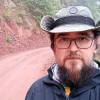
Mauricio Akmentins
National Scientific and Technical Research Council of Argentina (CONICET)
27 March 2024 6:04pm
Thanks to WILDLABS (Fauna & Flora and Arm) for this incredible opportunity to test new technologies for conservation of threatened Andean water frogs! We will share our results to get the feedback of the WILDLABS community
Adrien Pajot
WILDLABS
Fauna & Flora
1 April 2024 10:36am
Discuss with @JorgeLizarazo and his team about their project
Adrien Pajot
WILDLABS
Fauna & Flora
1 April 2024 10:37am
Discuss with @Mauricio_Akmentins and his team about their project:
Adrien Pajot
WILDLABS
Fauna & Flora
4 April 2024 1:51pm
Discuss with @Abigail and her team about their project!
Adrien Pajot
WILDLABS
Fauna & Flora
5 April 2024 4:02pm
Discuss with @Rob_Appleby and his team about their project!
Adrien Pajot
WILDLABS
Fauna & Flora
8 April 2024 8:52am
Discuss with @emilydorne and her team about their project!
Adrien Pajot
WILDLABS
Fauna & Flora
10 April 2024 9:04am
Discuss with @MattyD797 and his team about their project!
Adrien Pajot
WILDLABS
Fauna & Flora
10 April 2024 9:05am
Discuss with @eferguson and her team about their project!
Adrien Pajot
WILDLABS
Fauna & Flora
11 April 2024 8:35am
Discuss with @Andrew_Hill and his team about their project!
Adrien Pajot
WILDLABS
Fauna & Flora
11 April 2024 8:35am
Discuss with @bernie318 and her team about their project
Adrien Pajot
WILDLABS
Fauna & Flora
11 April 2024 8:35am
Discuss with @lberrigan and his team about their project!
Adrien Pajot
WILDLABS
Fauna & Flora
12 April 2024 9:28am
Discuss with @JeremyFroidevaux and @DarrylCox about their project!
Adrien Pajot
WILDLABS
Fauna & Flora
15 April 2024 9:24am
Discuss with @Hubertszcz and his team about their project!
Adrien Pajot
WILDLABS
Fauna & Flora
22 November 2024 2:32pm
Discuss with @eferguson and her team about their project
Adrien Pajot
WILDLABS
Fauna & Flora
22 November 2024 2:34pm
Discuss with @Abigail and her team about their project!




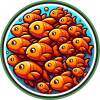
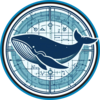




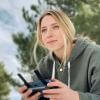

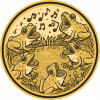
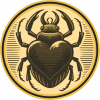
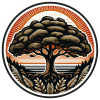
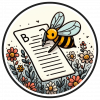

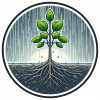

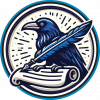
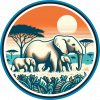

Alex Rood
WILDLABS
World Wide Fund for Nature/ World Wildlife Fund (WWF)